Surfing the wave of last year’s Time’s Up movement, the 2018 Student Academy Awards feature a batch of outstandingly diverse directors and stories. With four of its eight nominated films shot outside of the United States (from mainland China to Haiti), the ripple effect of championing diversity and acknowledging minority voices in Hollywood can be felt all the way to this year’s recognition of young talent. That isn’t to say that the Student Academy Awards haven’t always been rather diverse (just look at our roundup from last year), but the expressly political nature of this year’s batch proves that fighting for social justice is the current state of mind—and for good reason! With this series, Merry-Go-Round will be highlighting all eight films nominated in the Live Action – Domestic category.
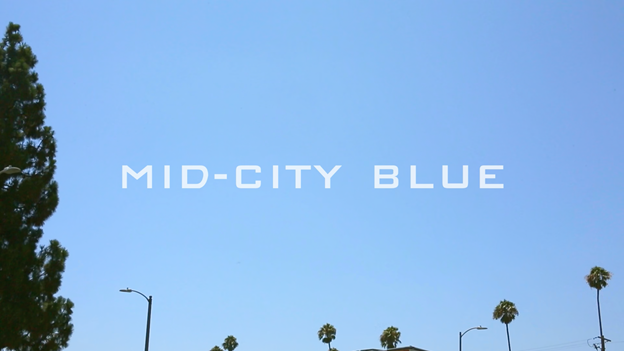
Few subjects are as pertinent to American culture as gun violence. Though it is rarely addressed, this issue is unquestionably joined at the hip with police brutality—arguably the most heated debate raging in the American discourse. Though the incidents that make it onto the evening news are oftentimes fatal encounters between unarmed black men and white officers, America has a long, often ignored history of less deadly, but equally tragic abuses of power. UCLA filmmaker and former law student, Kris Wilson, decided to tackle the subject of routine police brutality by crafting a portrait in which an avalanche of miscommunications lead to grave injustice. Drawing from personal experience, MID-CITY BLUE is a contained drama that neatly manages its tension to a profound boil.
Hi Kris, thanks for joining me.
Thanks for having me.
What I’d like to talk to you most specifically is the following: Considering the current political climate and considering other films in the past—FRUITVALE STATION, BLINDSPOTTING, and THE HATE YOU GIVE, to name a few—what your contribution to this conversation would be.
That was sort of an afterthought. I know it is topical, but for African-Americans it has been going on forever. I’m just in the space where I have the privilege to talk about it visually. The film started with a Facebook rant that I wrote after a bad experience with the police. Everybody expresses themselves in different ways, and I just happen to do so through film. I considered my experiences and my lifetime’s worth of experiences, and my friends’ experiences, and formed an amalgamation of stories I knew of. Sure, the film is just one encounter, but it really became a combination of encounters people had with the police.
Is there one particular personal experience you’d want to talk about?
*Laughs* Ooh, well I’ll have to make a long story short. Basically, I was down in San Diego for my nephew’s 21st birthday, because he’s in the military down there. Although he was already 21, he didn’t have his license yet, so I drove us. On the way to the hotel we were pulled over. Simply put, the cop didn’t treat us very well. Me, in particular, was treated poorly; told I didn’t know what I was doing, or what I was talking about. I asked the officer some questions as to whether or not what I did was illegal, and he got standoffish and asked me, “What, you think you know the law?” And I figured, “Well, yeah, I did graduate from law school, I’m a licensed attorney.” But I decided not to say anything in order not to make it a confrontational thing. But what really got me was that afterwards my nephew looked at me and asked, “Is this what I have to expect when I get a license?” And I looked at him for a second and thought… yeah. So I decided to write this up into a screenplay because I was interested in the police encounters that aren’t fatal, but the ones that are routine and have the potential to escalate into a far more perilous situation.
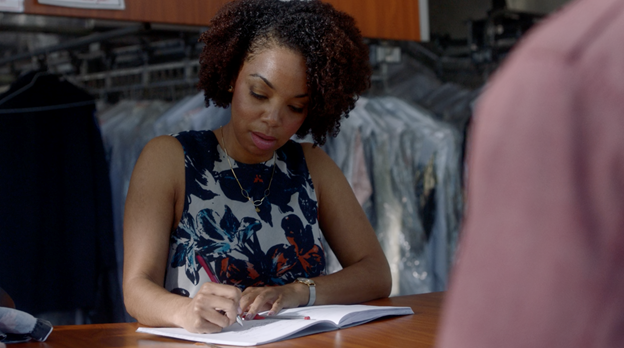
Did you go back to that Facebook rant in order to write the screenplay? Or did you just write it from memory?
Just from memory, because to me, I’ve had a range of experiences, from being let go with a warning to having guns drawn on me, backup called, all that. I’ve had such a range of experiences and have realized that everything from a rogue cop to a simple miscommunication can spiral things out of control.
Was this a thesis film?
No, this was actually my first project. I actually just shot my thesis out in Philadelphia.
Can you run me through your experience casting the film?
Casting is so interesting because actors bring things you never thought of that enhance your vision. My casting director, Kara Sullivan, helped talk me through character and story and found a lot of great people. Because the subject was topical, everybody brought something of themselves to contribute to the film.
How about your crew? Were they all UCLA students?
It was probably 75% UCLA students and alumni. The rest were working professionals that were willing to work on a student film. The entire key crew was UCLA, though.
How do you put the entire team in the right headspace to capture such an intense concept? Both in terms of pre-production and being on set, how do you make sure everybody is on the same page?
I didn’t have many conversations in pre-production about the gravity of the subject matter. I had those conversations with the cast. But I did speak with my sound guy about it quite a bit. When he was considering whether to work on the project, he explained that he had worked as an EMT, and wanted to make sure that the story would be an honest account, and not overdramatized to the point of becoming political. It was a legitimate concern, because he knew good police officers, as we all do, but I knew that although this film is fiction, it was drawn from real events. That helped my confidence a lot throughout pre-production. But even when we got on set, I was a little reticent that I was telling the right story. I finally got the assurance on the first day of set when I spoke to the real officers that were safeguarding the set.
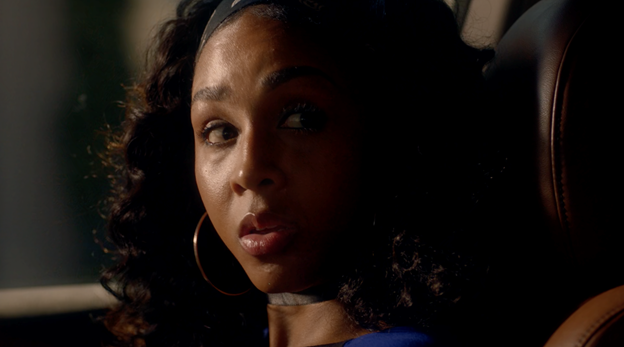
What was that experience like, discussing this with officers who likely have had interactions like this, or know fellow officers who have?
Well, my concern in pre-production was that this film wouldn’t be a shot at the LAPD. I wanted it to be about police abuse of authority in general. Once we were on set, I was a little nervous that it would be taken the wrong way. So I made sure to introduce myself to the police that were on our set and spoke with them. I remember speaking with the first officer, an older white gentleman closer to retirement. We were by his motorcycle and I was unsure about how to pitch it. But he just looked me in my face and said, “Look, I know these things happen.” An African-American officer came to set the next day and I made sure to do the same thing. When I explained the story of the film to him, he interrupted me and said, “You know what, this type of thing happens to me all the time. I might be off-duty and in civilian uniform and I’m suddenly not given the respect by the police that I’m used to giving others.” Once he gave me that reassurance, it really kicked some wind into the production. I knew that I had a responsibility to tell this story and to tell it honestly.
The moment in the film that really hits home is when the main character gives the officer’s oath back at the police. At what point did you know that was something you wanted to have happen?
It was very early on. I started thinking about the conflict and how we can escalate the action. Once the guns were drawn, I had to think of a way for the protagonist to de-escalate this situation and get the attention of a more hesitant officer. I realized that it might strike a cord if the officer is reminded of the conduct they should be upholding.
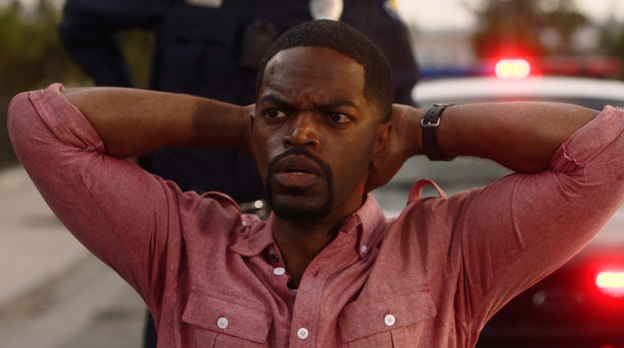
Circling back to your thesis film, can you tell us a bit about that?
It’s about Adverse Childhood Experiences. I think scholars call it ACES. It’s a film about three 10-year-old kids in Philadelphia who try and pass the time, but wind up in the wrong part of town and witness a drive-by shooting.
Considering that this is the follow-up to MID-CITY BLUE, what through line can you draw within your own filmmaking, either stylistically or thematically?
I really love drama that humanizes communities, and stories that historically haven’t been told from a humanistic perspective. Stories of underdogs. People whose stories can be distorted by statistics, stigmas, and labels. Delving into who these people really are. That’s really what I’m into.
And this is currently your last year in UCLA?
Yes, I’m almost done.
Are you planning to go back home to the east coast or stay in LA?
I’ll be staying here for a while.
Well thanks for talking.
I appreciate it, bro.
Catch MID-CITY BLUE on the festival circuit this year, and keep your eyes peeled for more of Kris’ work down the line!
Follow him on Instagram and Twitter @iamkriswilson



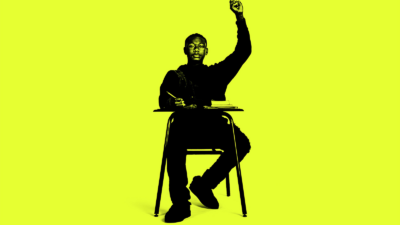

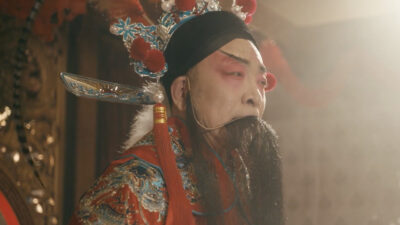
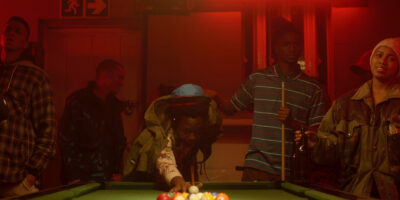

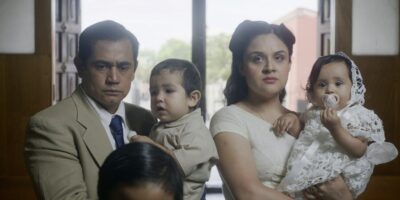
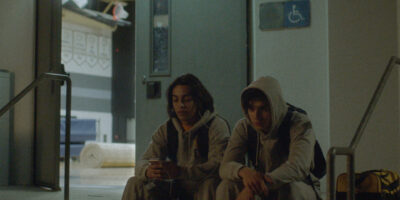
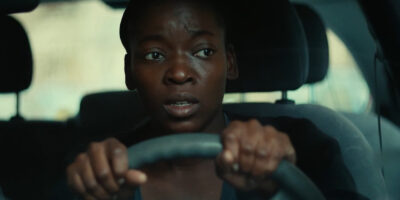





Comments